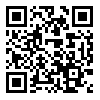Volume 13 -
mededj 2024, 13 - : 0-0 |
Back to browse issues page
Download citation:
BibTeX | RIS | EndNote | Medlars | ProCite | Reference Manager | RefWorks
Send citation to:



BibTeX | RIS | EndNote | Medlars | ProCite | Reference Manager | RefWorks
Send citation to:
Rostamzadeh M, Rahimi F, Rasouli M A. Evaluation of Prosthetic Procedural Skills in Senior Dental Students using the Self-Assessment Method in 2023-2024. mededj 2024; 13
URL: http://mededj.ir/article-1-506-en.html
URL: http://mededj.ir/article-1-506-en.html
Kurdistan Univercity Of Medical Sciences
Abstract: (2991 Views)
Introduction: The evaluation of prosthetic procedural skills is a crucial aspect of dental education. Self-assessment is a valuable method for evaluating students' practical skills, providing a feedback mechanism for continuous improvement and taking into account the students' point of view. This study aimed to investigate the level of practical skills of final year dental students in dental prostheses using the self-evaluation method and to examine the impact of interest and anxiety on self-assessment scores.
Materials and Methods: A cross-sectional study was conducted among 39 final year dental students. A researcher-created questionnaire was used to assess students' self-assessment scores for prosthetic procedural skills. The questionnaire included 45 questions, with 44 practical skills questions related to full and partial prostheses, and one open-ended question to identify causes of weaknesses in practical skills.
Findings: The results showed that interest in prosthetics and anxiety during prosthetic treatment were significant predictors of prosthetic procedural skills. Students with high interest in prosthetics had higher mean scores in professional skills (p=0.019), practical skills in partial prosthesis (p = 0.021), and practical skills in fixed prosthesis (p=0.049). Additionally, students with low anxiety during prosthetic treatment had higher mean scores in professional skills (p=0.039), practical skills in complete prosthesis (p=0.014), practical skills in partial prosthesis (p = 0.007), and practical skills in fixed prosthesis (p=0.007).
Discussion and Conclusion: This study highlights the importance of individual factors, including interest and anxiety, in influencing learning outcomes in prosthetics. The findings suggest that educators should consider the emotional and motivational states of their students when teaching prosthetic procedures. A more student-centered approach to dental education is recommended, taking into account the individual characteristics and needs of each student.
Materials and Methods: A cross-sectional study was conducted among 39 final year dental students. A researcher-created questionnaire was used to assess students' self-assessment scores for prosthetic procedural skills. The questionnaire included 45 questions, with 44 practical skills questions related to full and partial prostheses, and one open-ended question to identify causes of weaknesses in practical skills.
Findings: The results showed that interest in prosthetics and anxiety during prosthetic treatment were significant predictors of prosthetic procedural skills. Students with high interest in prosthetics had higher mean scores in professional skills (p=0.019), practical skills in partial prosthesis (p = 0.021), and practical skills in fixed prosthesis (p=0.049). Additionally, students with low anxiety during prosthetic treatment had higher mean scores in professional skills (p=0.039), practical skills in complete prosthesis (p=0.014), practical skills in partial prosthesis (p = 0.007), and practical skills in fixed prosthesis (p=0.007).
Discussion and Conclusion: This study highlights the importance of individual factors, including interest and anxiety, in influencing learning outcomes in prosthetics. The findings suggest that educators should consider the emotional and motivational states of their students when teaching prosthetic procedures. A more student-centered approach to dental education is recommended, taking into account the individual characteristics and needs of each student.
Type of Study: Research |
Subject:
Special
Received: 2024/09/3 | Accepted: 2024/10/7 | Published: 2024/04/3
Received: 2024/09/3 | Accepted: 2024/10/7 | Published: 2024/04/3
Send email to the article author
| Rights and permissions | |
 |
This work is licensed under a Creative Commons Attribution-NonCommercial 4.0 International License. |

This work is licensed under a Creative Commons Attribution-NonCommercial (CC BY-NC)




